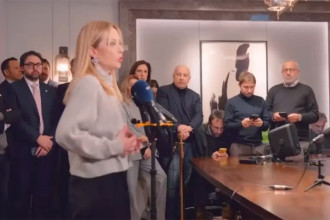
SAN FRANCISCO: A US judge handed Meta a victory on Wednesday in a lawsuit brought by authors who accused the tech giant of violating copyright law by training its Llama AI model on their works without permission.
District Court Judge Vince Chhabria in San Francisco ruled that Meta’s use of the works to train its AI was “transformative” enough to constitute fair use under US copyright law, marking the second courtroom success for an AI firm this week.
However, Chhabria added that the authors might have succeeded had they argued that training powerful generative AI systems with copyrighted material creates a tool that enables users to compete with rights-holders in the literary marketplace. “No matter how transformative training may be, it’s hard to imagine that it can be fair use to use copyrighted books to develop a tool to make billions or trillions of dollars while enabling the creation of a potentially endless stream of competing works that could significantly harm the market for those books,” he wrote.
Training large language models for generative AI requires vast amounts of data. Musicians, authors, visual artists and news publishers have sued various AI companies for using their data without permission or payment. AI firms defend their practices by claiming that training on large datasets fundamentally transforms the original content and is necessary for innovation.
“We appreciate today’s decision from the court,” a Meta spokesperson told AFP. “Open-source AI models are powering transformative innovations, productivity and creativity for individuals and companies, and fair use of copyright material is a vital legal framework for building this transformative technology.”
In the case before Chhabria, a group of authors alleged that Meta downloaded pirated copies of their books – including Sarah Silverman’s comic memoir The Bedwetter and Junot Díaz’s Pulitzer Prize-winning novel The Brief Wondrous Life of Oscar Wao – to train its open-source Llama AI model.
“This ruling does not stand for the proposition that Meta’s use of copyrighted materials to train its language models is lawful,” the judge said. “It stands only for the proposition that these plaintiffs made the wrong arguments and failed to develop a record in support of the right one.”
A separate federal judge in San Francisco ruled on Monday in favour of AI firm Anthropic, finding that its training of Claude AI models using books purchased or pirated was permissible under the fair use doctrine of US law. District Court Judge William Alsup described the use of the books to train Claude and its precursors as “exceedingly transformative” and likened the technology to human learning via reading.
That decision arose from a class action by authors Andrea Bartz, Charles Graeber and Kirk Wallace Johnson, who accused Anthropic of illegally copying their works to train its ChatGPT rival. Alsup rejected Anthropic’s attempt to gain blanket protection, however, ruling that downloading millions of pirated books to stock a permanent digital library was not justified by fair use.
By RSS/AFP






